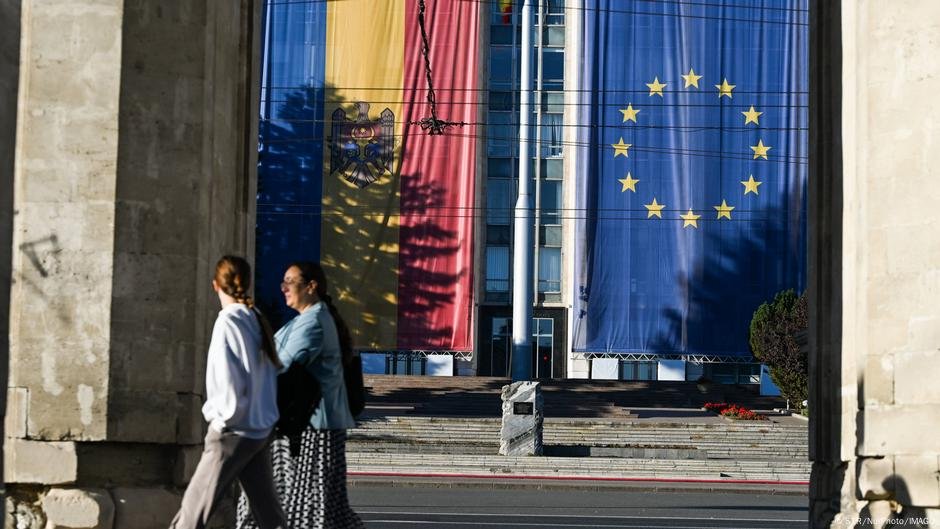Moldova’s Pivotal Parliamentary Elections: An Overview
On September 28, 2025, Moldova held parliamentary elections that could shape its political landscape for years to come. With rising tensions influenced by regional powers, the outcome of this election not only affects the country internally but also resonates across Europe and beyond.
Election Context and Significance
Moldova, a small nation sandwiched between Ukraine and Romania, has been caught in the geopolitical crossfire since it declared independence from the Soviet Union in 1991. The ongoing war in Ukraine has heightened its importance, turning the spotlight on its political allegiances and internal divisions.
Central to this election is the conflict between pro-European and pro-Russian factions. The ruling Party of Action and Solidarity (PAS), which supports EU integration, faces challenges from the pro-Russian Patriotic Bloc and other opposition parties. This electoral race is viewed as a battle for Moldova’s future direction: closer ties to the West or a return to Russian influence.
Early Results: Party of Action and Solidarity Maintains a Lead
As of the latest count, the Party of Action and Solidarity (PAS) is leading with approximately 44% of the vote, while the pro-Russian Patriotic Bloc has garnered about 28%. These early totals, reflecting 70% of ballots counted, indicate a potentially decisive victory for the PAS, although results continue to pour in from polling stations around the country.
Voting Participation and Closing of Polls
Polling stations closed at 9 p.m. local time, marking the official end of voting as over 1.59 million citizens—around 51.9% of eligible voters—had cast their ballots by that time. This figure includes those participating at 264,000 polling stations abroad, underscoring the involvement of the Moldovan diaspora in this critical election.
The Role of Transnistria in the Elections
In a notable twist, voters from the breakaway region of Transnistria crossed the border to participate in the elections. This unrecognized territory maintains strong ties with Moscow and has had Russian troops stationed there for decades. Voters expressed a desire for closer ties with Russia, although opinions were varied, reflecting a complex political landscape and uncertainty about future alliances.
The Influence of Undecided Voters
Many Moldovan citizens approached the elections with indecision, particularly those like Vitaly, a 42-year-old farmer from the south, who felt disconnected from political issues. With 42% of the population reportedly unsure of whom to vote for, the electoral outcome remains unpredictable. The lack of polling and engagement in certain regions complicates forecasting election results, making it a closely-watched situation.
President Maia Sandu’s Accusations of Russian Interference
In the lead-up to the election, President Maia Sandu warned of "massive interference" from Russia aimed at undermining Moldova’s sovereignty. She cited the purported involvement of Russian-funded political actors attempting to influence the vote and indicated that Moscow might be attempting to destabilize the nation for its own geopolitical interests.
Voting Integrity and Banned Parties
In a related development, Moldova’s Central Electoral Commission disqualified two pro-Russian parties from participating, citing concerns over illegal financing and foreign influence in the elections. This decision has sparked debates over the integrity of the voting process, with leaders from the banned parties claiming political bias and suppression.
A Look Ahead
As vote counting continues, the implications of this electoral battle extend beyond Moldova’s borders. The choices made during this election will play a critical role in determining whether the country will draw closer to European Union standards or fall back under Russia’s shadow.
The outcome of this election could signal a turning point for Moldova’s trajectory, with ramifications for its citizens, regional dynamics, and international relations. With ongoing tensions in the area, Moldova stands at a critical juncture, and the world is watching closely as the final results emerge.
For more information on the geopolitical significance of Moldova in relation to its neighbors and global powers, refer to this analysis.
Conclusion
As Moldova continues to navigate its complex geopolitical landscape, understanding the social, economic, and political fabrics of its elections will be pivotal for anticipating future developments in the region. The 2025 parliamentary elections may well define Moldova’s path towards its envisioned European integration or a return to its historical ties with Russia.


